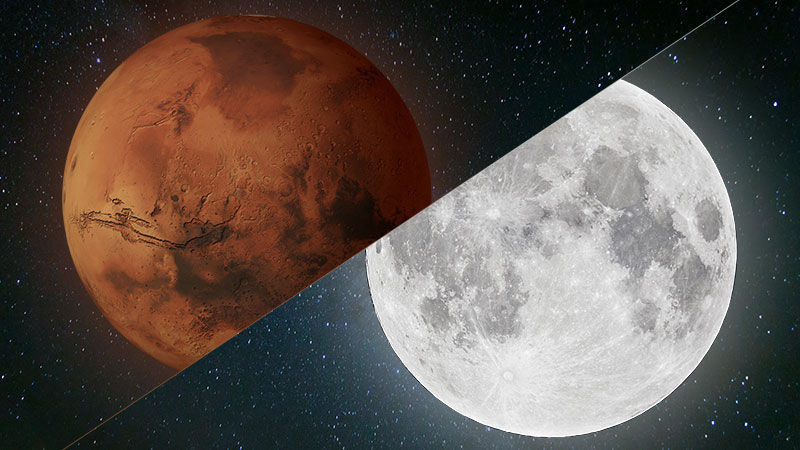Americans aren’t interested in the Moon and Mars—and that’s understandable
Ars Technica » Scientific Method 2019-06-20

Enlarge / Mars or the Moon? It’s a debate that has bedeviled NASA for decades. (credit: Aurich Lawson / Getty Images)
Nearly two years ago, Vice President Mike Pence made the administration's space policy official, saying NASA would re-focus its program around "establishing a renewed American presence on the Moon, a vital strategic goal." In December 2017, President Trump signed a space-policy document codifying this human-exploration plan.
Under this space-policy directive, a sustainable presence on the Moon would then become a stepping stone to destinations further out in space, such as Mars. The president recently made clear his preference for getting to Mars quickly, tweeting a few weeks ago: "For all of the money we are spending, NASA should NOT be talking about going to the Moon—we did that 50 years ago. They should be focused on the much bigger things we are doing, including Mars."
A new poll suggests this talk about sending humans back to the Moon or on to Mars is out of step with the views of most Americans. The survey of 1,137 US. adults by The Associated Press-NORC Center for Public Affairs Research suggests only about one-in-four Americans believe sending humans to the Moon or Mars is "very" or "extremely" important.